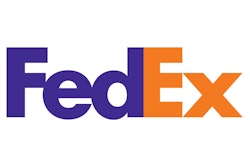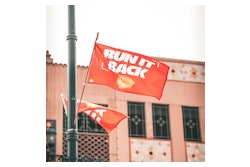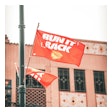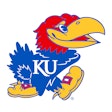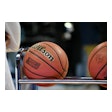Copyright 2016 Dayton Newspapers, Inc.
CLEVELAND - In their seven-game matchup with the Chicago Cubs, the Cleveland Indians ended their standout season with a loss.
But there were plenty of World Series winners here.
At downtown hotels, occupancy and rates spiked. On the afternoon of game seven, Burke Lakefront Airport was so packed with private planes that air-traffic controllers had to send incoming baseball fans to other airfields.
There aren't firm numbers on the economic impact of Cleveland's hosting role for four World Series games, which took place Oct. 25 and 26 and Nov. 1 and 2. In a study several years ago, a local economic-development group estimated the benefit of a postseason Indians game at roughly $3 million, accounting for direct spending, increased tax revenues and extra payroll.
A World Series game might have three times as great of an impact, said David Gilbert, who leads the convention and visitors bureau and the Greater Cleveland Sports Commission. Though that figure, he acknowledged, is just a guess.
"It wouldn't surprise me if each World Series game generated $8-to-$10 million in direct spending, or more," Gilbert said. "It's hard to even throw a number at it."
Gilbert was sitting in the crowd at Progressive Field during game six and chatting with a local woman whose husband was trying to sell four tickets to the final game. As they talked, she received a message. Her husband had found a taker at $30,000, or $7,500 a ticket.
Such secondary-market transactions aren't as easy to track as spending on hotel rooms, bar tabs and restaurant checks. Still, it's clear that online ticket resales were a windfall for some Cleve-landers who were willing to part with a shot at watching history - in exchange for enough cash to cover a year of tuition at the Ohio State University or a down payment on a house.
Strong traffic on the ground
A mile away from the ballpark, Ben McKeeman charged $765 for a two-night stay at his one-bedroom apartment on Duck Island during the first and second games against the Cubs. His guests were out-of-town Indians fans willing to pay $382.50 a night, a hefty jump from the $130 McKeeman typically gets per night through the Airbnb home-sharing website.
A 27-year-old planner and GIS specialist, McKee-man vacated his apartment twice earlier in the postseason, when Boston Red Sox and Toronto Blue Jays fans poured into town and paid double his nightly rate. Only the Republican National Convention, when he charged $3,200 for a six-night stay in his Airbnb debut, was more lucrative than the Indians' late-season run.
McKeeman, who stays with his boyfriend in Akron or family nearby when his apartment is booked, estimated that half of his guests since July have been baseball fans. With the season over, now he's banking on the Cleveland Cavaliers to generate bookings and offset his rent.
"I know I can't rely on the Browns for anything," he added, bemoaning football.
Airbnb reported that Cleveland-area hosts accommodated 1,350 World Series travelers and collectively earned $630,000 over the four games. Cleveland and Cuyahoga County started collecting lodging taxes - the same taxes hotel guests pay - on short-term rentals this year.
"I had a guy book 10 days out, from Iowa, who was bettingthattherewouldbeaseventh game - a Cubs fan," said Tom Matia, Jr., a 62-year-old Airbnb host with three rentals in Cleveland's Tremont neighborhood. "And we're not just talking about the World Series. We're talking about the series with Boston and Toronto. And also the watch parties. We had people coming up here from Columbus, Willoughby, and Pittsburgh and Chicago for the watch parties."
Traditional hotels also were packed during the series, according to data from STR, an analytics company that tracks the hospitality industry. Occupancy topped 98 percent at hotels in and near downtown Cleveland for game one, the same night that the Cavaliers hosted their NBA championship ring ceremony and home opener at Quicken Loans Arena.
Downtown-area hotel occupancy was between 96 and 98 percent on the nights of the remaining World Series games. That means anywhere from 6,785 to 6,931 hotel rooms were full in Cleveland and Independence, along the Interstate 77 corridor, based on STR's data set.
The average daily rate in that area peaked for game seven at $208.94, up almost 60 percent from what centrally located hotels were charging on Nov. 2, 2015, a year before.
Across the broader market, which stretches to Vermilion to the west and past Conneaut to the east, hotel occupancy was up by 20 to 26 percent on game nights compared with the previous year, when the Indians weren't part of the postseason. The region's average daily rate hit a high of $152.71 on the last night of the series, based on STR's data.
Rates at some downtown hotels, walking distance from Progressive Field, were six times that. Those visitors and their local counterparts spent readily at restaurants on East Fourth Street, at bars in the Gateway District around the ballpark and The Q and on extras including parking.
On East Ninth Street, just steps from the ballpark, a small lot sold out on the first day of the series at $100 per space. Other nearby operators were asking $75 or $80 for parking - sky high for many Clevelanders but apparently less intimidating to well-heeled Cubs fans.
Paul Shaia, vice president of Shaia's Parking, said the locally-owned company raised its first-game rate to $50 at a lot that faces the northeast entrance to Progressive Field. For later games,thecompanyreduced that rate to $40. At other nearby parking lots, Shaia charged an average of $25. But spaces were as cheap as $5 to $10 for people willing to walk 15 minutes.
"We were definitely nowhere near the high rates that you were probably seeing," Shaia said. "That's just our general philosophy. We were excited to have downtown busy. ... There were a lot of people down here. The restaurants did great. The other retailers did great. I think everyone benefited. I think the city benefited because of all the media in town, walking around, seeing how beautiful it is. There are a lot of intangibles to it."
Long-term, Shaia hopes the World Series exposure, on the heels of the GOP convention and the Cavs championship, will help make downtown more attractive to residents, companies and investors. Each blockbuster event was a chance to showcase the center city to people who might not have been downtown in years - or who might never have visited Cleveland.
Congestion in the air
Activity at Burke and other airports indicated the level of traffic from outside of the city. On the night of game seven, a Wednesday, more than 400 private planes were parked at Burke, on the northern edge of downtown. The airport had to close an inboard runway to create extra aircraft parking. And Burke still ended up diverting travelers to Cleveland Hopkins International Airport and the Cuyahoga County Airport in Richmond Heights.
"In the time that I've been here, I think about 16 years now, I've never seen the level of traffic at Burke that we experienced," said Fred Szabo, interim director of the city of Cleveland's department of port control, which oversees Burke and Hopkins. "It was even higher than the RNC, which surprised me. We really felt the effects of the World Series."
Across the four games, Burke recorded 1,400 aircraft operations, or an average of 350 a day. On a typical day, the small airport might see 100 such operations, Szabo said. The crush of traffic - 5,300 people arrived and 4,900 departed from the airport on World Series days - led to increased landing fees, parking fees and catering bills. Fuel sales totaled $1.2 million.
Then there were roughly 2,000 car trips to and from the airport, in rental cars, by taxi or by car services including Uber. Some travelers went to the game then immediately returned to Burke to take off, requiring additional airport staffing and overtime pay.
At Hopkins, commercial flights from Chicago were totally booked. A few airlines boosted the size of planes on the route, though they stopped short of adding flights. Hopkins processes 20,000 passengers on a typical day, so the increase in commercial traffic wasn't notable. There was a significant jump in private arrivals, though, with almost 160 corporate planes parked at Hopkins on Wednesday evening and requiring 31,000 gallons, or $171,000 worth, of fuel.
The Cuyahoga County Airport, 11 miles from downtown, might see 85 planes on an average day. Traffic spiked to 124 planes on the first night of the series and hit 186 planes on the final evening of the contest. Officials closed an inner taxiway to make room for additional aircraft parking. The level of activity was similar to what the airport experienced during the GOP convention, but compressed - lots of arrivals and departures in a much shorter time span.
Researchers at Cleveland State University are putting together an economic-impact study of the political convention, but it's unlikely anyone will conduct a similar, detailed review of the World Series. The scales of the events are much different, Gilbert notes, estimating that spending related to the convention might come to $200 million or more. And the most valuable boost from Cleveland's stint in the spotlight - visibility - is difficult to measure.
"Nobody really worries about the economic impact of a World Series because they're sporadic," said Joe Roman, chief executive officer at the Greater Cleveland Partnership, the metropolitan chamber of commerce. "They happen to you. You've got to get both good and lucky at the same time."
For his part, Roman believes the value of the World Series to the local economy won't be clear until the tally of 2017 Indians season-ticket purchases is in. During the recent season, the franchise still had one of the lowest attendance rates in Major League Baseball, attracting only 19,650 fans, on average, at home. Progressive Field has just over 35,000 seats, plus standing-room areas, after recent renovations that cut the size of the ballpark by roughly 7,000 chairs.
Huge crowds at the World Series games, and at ballpark watch parties while the team was in Chicago, were a reminder of how the Indians used to pack the house in the late 1990s.
"This is a team that's showing every ability to compete at the highest level now with younger players for the next three, to five, to seven years," said Roman, who went to the first World Series game this year.
"As a community, we have to reward that kind of performance with more tickets, which then contributes to a stronger downtown, the hospitality business and everything that goes with it. To me, that's more of the economic impact of getting to be in the World Series than however many Cubs fans came to Cleveland for a couple minutes."
Terms and Conditions Privacy Policy













